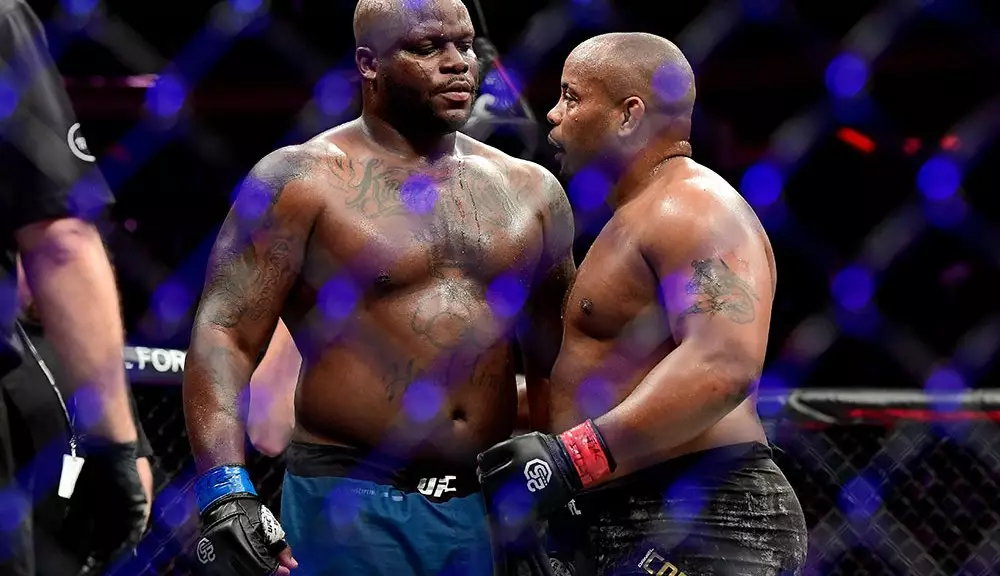In the combat sports realm, emotions run high, and rivalries can simmer beneath the surface for years. Among these dynamics, the relationship between heavyweight fighters Derrick Lewis and Daniel Cormier stands out as particularly charged. As Lewis prepares for his upcoming battle against Jhonata Diniz at UFC Fight Night 246, his revealing remarks about Cormier have stirred discussions and showcased the lingering animosity from their previous encounter. Analyzing Lewis’s statements offers insight into the broader implications of rivalry and respect in mixed martial arts.
Derrick Lewis, a fan-favorite known for his explosive knockout power and charismatic personality, faced Daniel Cormier in a title fight back in 2018. That evening, Lewis was submitted, marking a significant moment in both of their careers. Cormier, a two-division champion, has often positioned himself as a critical voice within the sport, raising eyebrows with his blunt assessments. Lewis’s interest in a rematch with Cormier, despite the latter’s retirement, reflects not only personal grievances but also Lewis’s hunger for redemption and recognition.
During a recent media day, Lewis made headlines with his fiery comments directed at Cormier, going so far as to label him a “piece of sh*t.” While Lewis is known for injecting humor into serious situations—his bizarre mention of Popeyes chicken exemplifies this—it is clear that his feelings toward Cormier run deep. Such remarks suggest that beyond playful banter, there is a genuine undercurrent of dissatisfaction. Lewis equates Cormier’s previous criticisms of his performance with a sense of disrespect, indicating that the former champion may have crossed a line in his commentary.
In response, Cormier has maintained a professional demeanor but acknowledged the possibility of unresolved tensions. His admission of having been critical of Lewis’s performances speaks to the pressures that analysts face in balancing honesty with humility. Cormier’s concern that he might have offended Lewis highlights the fine line between critique and disrespect in a sport that demands both physical and mental strength. Whether or not he views Lewis’s comments as humorous or serious, Cormier knows that relationships in MMA can shift quickly, particularly as stakes rise.
The complexities of Lewis and Cormier’s relationship demonstrate the duality of competition and camaraderie in the octagon. Both fighters have experienced the heights of victory and the bitterness of defeat; their interactions reflect the shared journey of elite athletes. Lewis’s desire for a rematch not only signifies a yearning for vindication but also acknowledges the respect he harbors for Cormier’s legacy. Despite their personal differences, they share an indelible bond forged through competition.
As Derrick Lewis approaches his bout with Jhonata Diniz, his lingering feelings toward Daniel Cormier highlight the emotional landscape that often accompanies professional fighting. The mutual respect inherent in their rivalry suggests that while personal animosities may flare up, the deep-rooted connections formed inside the octagon are equally significant. Regardless of their past confrontations, Lewis and Cormier advance as figures emblematic of the complex narratives that define mixed martial arts. In the end, their stories might continue to intersect; while Lewis seeks redemption, Cormier’s legacy as an outspoken figure in the sport remains, making their relationship a fascinating subplot in the ongoing saga of the UFC.

